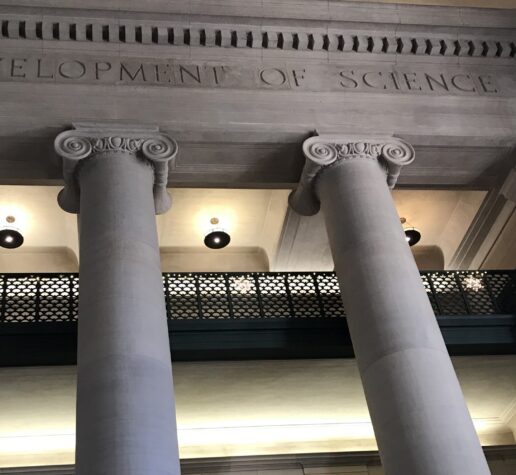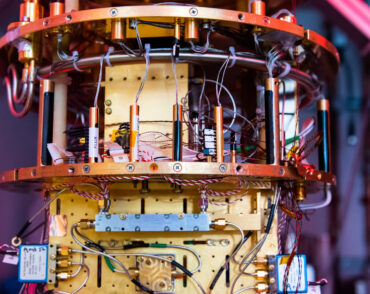
Three MIT affiliates receive Schmidt awards
Jörn Dunkel and Surya Ganguli ’98, MNG ’98 receive Science Polymath awards; Josh Tenenbaum is named AI2050 Senior Fellow.
Two MIT faculty were recently honored by Schmidt Futures, a philanthropic initiative of Eric and Wendy Schmidt. MathWorks Professor Jörn Dunkel received the 2023 Schmidt Science Polymath award, and professor of computational cognitive science Josh Tenenbaum was named a Schmidt Futures AI2050 Senior Fellow.
Also winning a Schmidt Science Polymath award was Surya Ganguli ’98, MNG ’98, who is an associate professor at Stanford University.
Science Polymaths
Dunkel is part of a select group of nine distinguished scientists who this year join the existing network of Schmidt Science Polymaths, awarded to recently tenured professors with remarkable track records doing interdisciplinary research.
The Schmidt Futures Initiative awards $500,000 per year for up to five years to support innovative, highly interdisciplinary research by recently tenured professors with remarkable track records, promising futures, and a desire to explore interdisciplinary research.
Dunkel’s current research studies self-organization processes in complex biological and physical systems across a wide range of scales, from bacterial biofilms and embryonic tissues to brain dynamics and global trade networks. In collaboration with their experimental partner labs at MIT, his group is developing and investigating mathematical models that describe and predict the emergent dynamical behaviors of multicellular and multi-organismal communities. By analyzing the structure of the underlying model equations, Dunkel seeks ways to bridge seemingly disparate systems through the “common language” of math.
“I would like to express my profound thanks to the Schmidt Futures Initiative for this generous award, which gives us the freedom to explore new research directions,” says Dunkel. “I am particularly grateful for the encouragement to pursue interdisciplinary projects that aim to challenge prevalent paradigms by integrating state-of-the-art data acquisition with new mathematical approaches. And big thank-you to my PhD students and postdocs and our collaborators whose exceptional work is recognized through this award.”
Surya Ganguli was a triple undergraduate MIT major in electrical engineering and computer science, physics, and mathematics. Now as an associate professor of applied physics at Stanford, he leads the Neural Dynamics and Computation Lab and has been a visiting researcher at both Google and Meta AI. His research spans the fields of neuroscience, machine learning, and physics, focusing on understanding and improving how both biological and artificial neural networks learn striking emergent computations.
AI2050 Senior Fellow
Josh Tenenbaum, professor of computational cognitive science in the Department of Brain and Cognitive Sciences, the Computer Science and Artificial Intelligence Laboratory, and the Center for Brains, Minds and Machines, was selected as a 2023 Schmidt Futures AI2050 Senior Fellow.
Tenenbaum will pursue interdisciplinary research in artificial intelligence to help chart the development of AI for societal benefit. As a senior fellow, Tenenbaum’s long-term goal is to reverse-engineer intelligence in the human mind and brain, and use these insights to engineer more human-like machine intelligence.
AI2050 has allocated up to $7 million to support the new Senior Fellows’ research to address “hard problems” in AI in their respective fields including computer science, chemistry, cognitive science, the arts, and philosophy.
Tenenbaum is best known for theories of cognition as Bayesian inference, with a focus on explaining how humans can learn so much so quickly, from so little data. In AI, he has developed influential approaches to dimensionality reduction, unsupervised learning and structure discovery, and probabilistic programming.
His current research focuses on probabilistic program models of common sense in humans and machines, grounding language and perception in these representations, and learning based on program synthesis.


